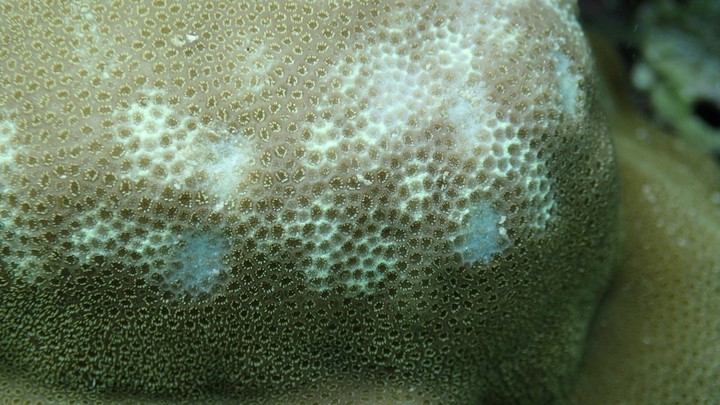Associational refuge by macroalgae from corallivory
 Photo by G.Srednick
Photo by G.SrednickOn coral reefs, the balance between coral and macroalgal dominance is an important implication of localized anthropogenic stressors and modifications of thermal regimes due to climate change. There is considerable support for the hypothesis that macroalgae are strong, and often dominant competitors to corals and can lead to ecosystem state shifts from coral to macroalgal dominated. In addition to competition, stony corals are also subject to corallivory from fish predators. While the impact of corallivory might be lesser than that of competition with macroalgae there is evidence of context-dependent positive effects of macroalgae in buffering the effects of corallivory. In the same way that larger adult corals may provide indirect defense from consumers for other nearby small colonies or species through physical defense or impediment to access (Kayal et al. 2011) and reduction in predator detection due to increased habitat complexity, macroalgae can offer protection from corallivorous fishes.
In Mo'orea, French Polynesia I tested the hypotheses that a common macroalga (Turbinaria ornata) has a general positive effect on a common stony coral (massive Porites spp.) by mitigating the amount of corallivory through camouflage, and that small coral colonies benefit disproportionately more from macroalgal refuge than large ones. As it turns out, small Porites colonies do benefit, however it may come at a cost (e.g., growth). Check it out in our new Note in Coral Reefs!